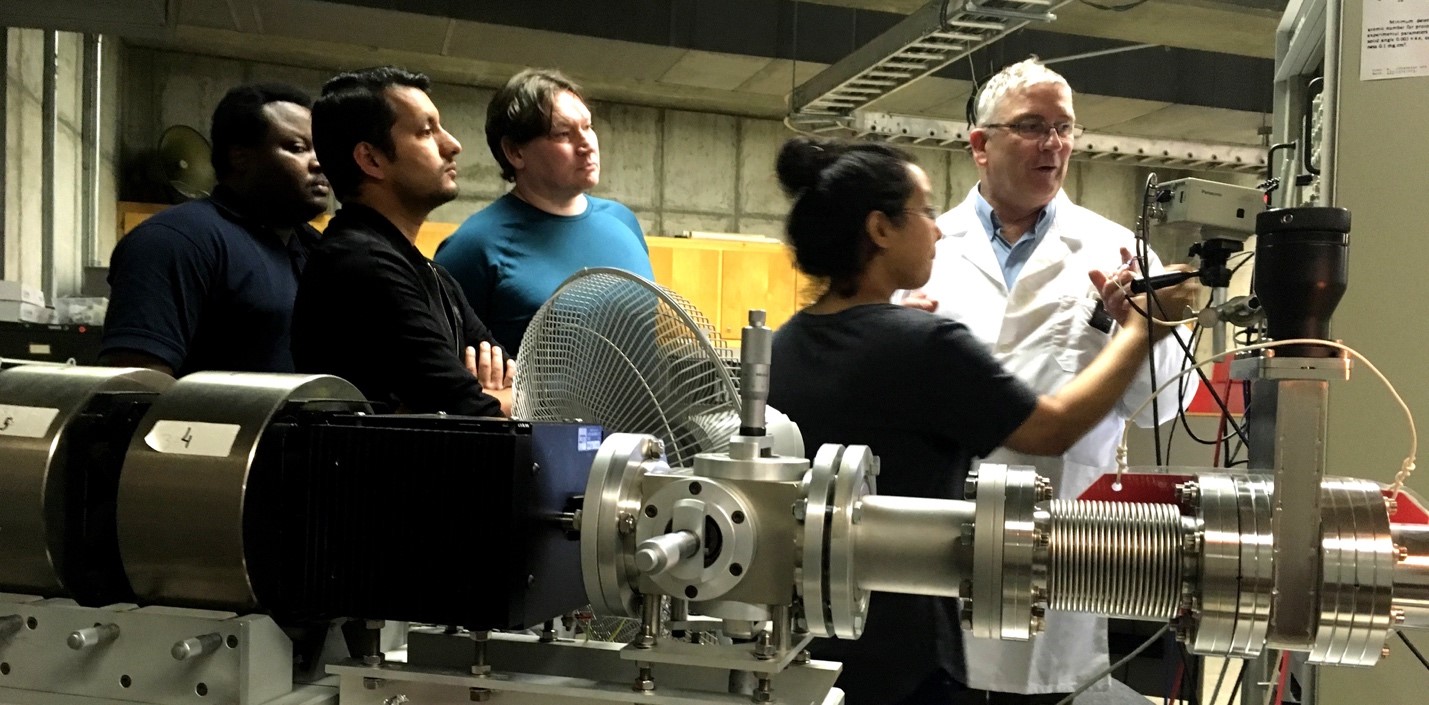Exciting New Physics Graduate Course
Tue, 03/19/2019 - 8:44amExciting New Physics Graduate Course in Quantitative Ion Beam Analysis Gets Underway

Students studying in a laboratory-lecture under the leadership of professor Harry J. Whitlow at the Louisiana Accelerator Center.
A new 3 credit graduate physics course in physics: Quantitative Ion Beam Analysis started in the Spring term of 2019 and is now well under way at the Louisiana Accelerator Center. Ions of elements like hydrogen, helium, carbon and oxygen that are produced by the 1.7 MV Pelletron accelerator are powerful probes for analyzing materials. The course covers in-depth the theory and application of techniques such as Particle Induced X-ray Emission (PIXE) and Rutherford Backscattering Spectrometry (RBS) and how they can be applied for a wide range of studies such as catalytic materials for petrochemistry, measuring the thickness and composition of thin coatings, advanced polymer films and even how life-elements redistribute as a result of biological infections. The new course was developed by Harry J. Whitlow who is a professor in the Department of Physics and Director of the Louisiana Accelerator Center and assisted with the laboratory work by Armin deVere (Accelerator Engineer) and Dr. Naresh Deoli (Research Associate and Adjunct in Physics). A key feature of the course is lecture-labs where the students get hands-on training in using major research infrastructure at the Louisiana Accelerator Center with their own samples so that they can later use the advanced techniques in their Masters and PhD projects.
